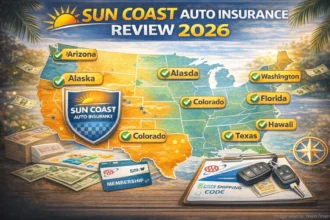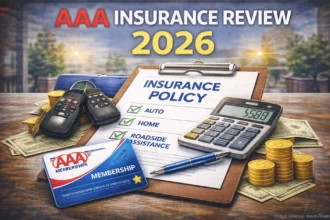Getting the right liability coverage at a competitive price is essential for businesses, large and small. Public liability insurance protects your company from costly claims if someone is accidentally injured or their property is damaged due to your business activities.
With so many providers and policies on the market, finding the most suitable and affordable public liability insurance can feel overwhelming. This comprehensive guide shares insider tips and strategies to secure the best public liability insurance quotes tailored to your business needs.
Understanding Public Liability Insurance
Before we dive into the meat of getting quotes, let’s ensure you fully understand what public liability insurance covers and why it’s so important.
Public liability insurance protects your business financially if you’re legally liable for:
- Injury to a member of the public or third party
- Accidental damage to someone else’s property
- Legal expenses to defend a claim
This type of insurance is not a legal requirement in most cases. However, it provides vital protection for businesses that interact with clients, customers, suppliers, or members of the public. Many companies and clients insist contractors carry suitable public liability coverage before awarding work.
Without this insurance, your business would have to pay compensation and legal costs out-of-pocket if someone makes a claim against you. These costs can easily run into tens of thousands of pounds or more for serious incidents.
READ ALSO: Top Liability Insurance Companies of 2024: Ratings, Reviews, and Value
What Affects Public Liability Premiums?
Insurance providers consider many factors when calculating your public liability insurance premium. Understanding these pricing factors is key to getting an accurate and competitive quote:
Business Activities: Your business operations and industry largely determine your risk level in the eyes of insurers. Tradespeople like builders, electricians, and plumbers tend to pay higher premiums than office-based businesses due to the nature of their work.
Contact with the Public: Businesses with higher levels of interaction with the public, such as retailers or service providers, typically face increased premium costs. More public contact equates to higher potential liability risks.
Use of Materials, Tools, and Equipment: Companies using heavy machinery, power tools, or other potentially dangerous equipment also see higher premiums due to the elevated risk of accidents and injuries on site.
Number of Employees: Insurance costs rise as you take on more staff members, as this increases your public liability exposure through the actions of your workers.
Annual Turnover: For some business types, particularly in the retail trade, insurers may use your expected annual turnover as a pricing factor since higher turnover can imply more public interactions.
Location: Where your business is based and operates can influence rates, with areas of higher population density often resulting in more expensive coverage.
Claims History: Like other insurance products, premiums increase for businesses with a history of prior public liability claims as they are viewed as higher risk.
Strategies to Get Competitive Public Liability Insurance Quotes
With an understanding of the key rating factors, you can now deploy specific tactics to obtain the lowest public liability premiums for your business. Here are some top insider tips:
1. Find a Specialist Broker: Working with an independent insurance broker who specialises in public liability coverage gives you a significant advantage. Their expertise and ability to leverage insurer relationships often lead to better rates than you could find directly.
2. Shop Around and Obtain Multiple Quotes: Don’t simply accept the first quote you receive. Different insurance providers calculate premiums using varying methods and rating factors. Obtain at least 3-5 quotes from reputable insurers or brokers and compare their rates, coverage limits, exclusions, and policy terms side-by-side.
3. Time Your Purchase Appropriately: Many insurance companies and brokers offer discounted rates at certain times of the year as they try to hit sales targets. Timing your purchase towards the end of annual or quarterly periods could yield lower premiums.
4. Provide Accurate Information: Insurers need precise details about your operations, revenue projections, employee count, claims history, and more to provide an accurate quote. Don’t under or overestimate any information, as this could invalidate a potential claim later or result in much higher premiums during a policy adjustment.
5. Increase Deductibles/Excess: As with any insurance product, taking a higher voluntary excess or deductible amount will lower your upfront premium cost, but mean higher out-of-pocket expenses if you need to claim.
6. Combine Policies: Bundling multiple business insurance products like public liability, professional indemnity and employers liability with a single provider is usually rewarded with a discount. Some insurers offer up to 15% off when combining policies this way.
7. Implement Risk Management: Proactively demonstrating your business takes risk mitigation seriously can help reduce premiums. Strategies like implementing official health and safety policies, staff training programs, and accident documentation protocols tend to be looked upon favourably by underwriters.
8. Join an Association: Trade associations and membership groups sometimes strike up discounted insurance schemes for their members with particular providers. Enquire if your industry body offers any such group plans.
9. Pay Annually: Most insurers incentivize customers to pay their full premium annually instead of monthly by offering lower overall rates. While a larger upfront sum, the total yearly cost works out cheaper.
10. Maintain Continuous Coverage: Sticking with the same insurer for multiple years and maintaining uninterrupted coverage can make you eligible for lucrative long-term customer discounts and loyalty benefits.
READ ALSO: Liability Insurance Rates: Factors That Influence Your Premium
Tailoring Your Public Liability Coverage Limits
Once you understand the rating factors and have gathered multiple competitive quotes, the next step is selecting your ideal coverage limits based on your specific risk profile and protection needs.
Most insurers provide public liability limits from £1 million up to £5 million per claim, with £5 million being recommended for higher risk businesses or those working on large commercial projects. That said, £1 or £2 million tends to suffice for many smaller, lower risk operations.
When tailoring your coverage amount, ask yourself:
- How much could a serious claim potentially cost your business in damages and legal fees?
- What are the liability insurance requirements of your clients, contractors, and business partners?
- Can your cash flow withstand higher premiums for increased coverage limits?
Also, consider supplementing your standard public liability policy with:
Product Liability: This extension covers injury or damage claims related specifically to products you manufacture, supply, or sell to third parties. It’s essential for retailers, makers, importers, and distributors.
Employer’s Liability: If you have any employees, even part-time staff or contractors, this legally-required cover protects you from claims if they are injured or become ill due to the work they do for your business.
Professional Indemnity: Professional service providers like consultants, accountants, IT contractors, and designers should add this coverage for claims of negligence, errors, or omissions made when delivering their services.
To summarize, your ideal coverage limits and additional coverages will depend on balancing your risk exposure against premium affordability for your business. Most brokers recommend erring on the higher side of coverage to properly protect your assets and revenue.
Conclusion: Secure Competitive Public Liability Coverage for Peace of Mind
Whether a plumber, consultant, retailer, or another type of business owner, getting comprehensive and affordable public liability cover is essential for financial security and peace of mind.
By shopping around, working with a specialised broker, understanding unique business rating factors, and utilising the insider tips outlined in this guide, you can obtain highly competitive quotes tailored to your industry and protection needs.
Remember, cheapest doesn’t always mean best when it comes to insurance. Look beyond just the premium amount and compare each policy’s coverage limits, exclusions, terms, and insurer reputations before making your final selection.
Your business deserves a public liability insurance policy that robustly safeguards against third-party claims and lawsuits without breaking the bank. By being an informed buyer and deploying these insider strategies, you’ll emerge confident you landed the ideal coverage at the lowest possible price point.
Public Liability Insurance FAQ
What is the difference between public and product liability insurance?
Public liability protects against claims of bodily injury or property damage to third parties arising from your business operations and workplace. Product liability is an extension covering claims related specifically to products you manufacture, supply, distribute, or retail to others.
Do I legally need public liability insurance?
For most businesses and self-employed individuals, public liability insurance is not a legal requirement in the UK. However, clients and contractors may insist you carry a minimum level of coverage before awarding work. Additionally, even if not legally mandated, this cover offers crucial financial protection for unavoidable accidents.
How much public liability insurance do I need?
Coverage limits typically range from £1 million up to £5 million per claim. Higher risk operations like construction trades tend to take out £5 million, while less hazardous businesses often find £1 or £2 million sufficient. Always consider your worst-case claim scenario when tailoring coverage limits.
How much does public liability insurance cost?
Public liability premiums fluctuate significantly based on your business activities, size, location, claims history, and coverage needs. In general, lower risk operations pay £100 to £500 annually, while high hazard companies should budget for premiums between £500 to £2,000 per year.
Can I pay for public liability insurance monthly?
Yes, most insurance providers allow the option to spread your policy cost over monthly instalments for an additional fee. However, paying annually results in a lower overall premium.
My business is home-based. Do I still need public liability coverage?
Yes, having clients or third-parties visit your home office means you need public liability insurance to cover slip-and-fall risks and other potential on-site accidents.
Are employees covered by my public liability policy?
No, any injuries sustained by your employees or claims from them would not fall under a public liability policy. For employee protection, you require a separate employer’s liability insurance policy.
In another related article, How Much Does Liability Insurance Cost? A Comprehensive Guide





